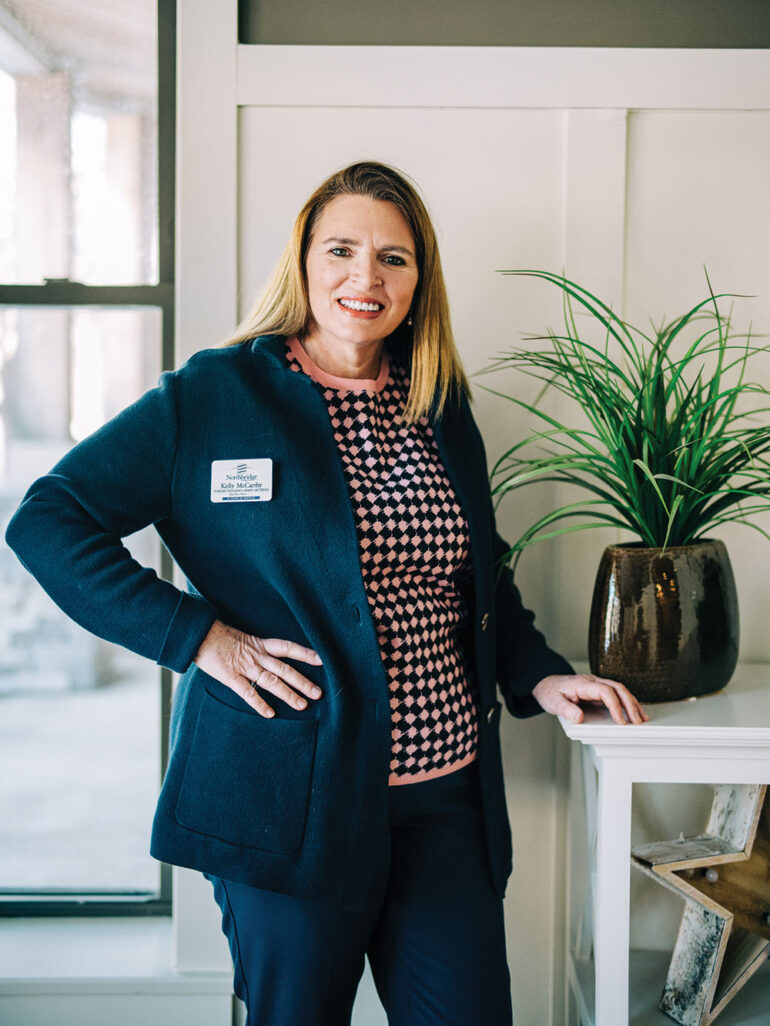 Northbridge Communities
Northbridge CommunitiesAs vice president of resident engagement and memory-care services for Northbridge Communities, Kelly McCarthy supports staff, residents, and family members through programming, training, and education. She shares what she’s learned from working with people with memory loss in her book, Brass Ring Memoirs: Encouraging stories using practical methodologies to help caregivers reach for their goals in Alzheimer’s and dementia care.
What are the signs that someone is experiencing something more serious than mild age-related forgetfulness?
There are more than 100 different diseases that can cause memory loss. If you are seeing somebody who’s off — maybe there’s repetitive speech or behavior, or maybe there’s isolation — it’s important to see a doctor and get a baseline screening. Because it may not be memory loss; it might be an underlying medical condition that’s causing a cognitive decline. And even if it looks like memory loss, it may not be progressive memory loss.
How can family members support themselves when dealing with an Alzheimer’s diagnosis?
All the things that are good for the heart are also good for the caregiver: Make sure you get rest, your stress level is low, you eat well, and you exercise. But other things are important to preserving your health and well-being too: What are you not doing anymore because you’re busy? Do you like to have a massage? Do you like to go out to dinner with your friends and don’t find the time anymore?
Those things are so valuable to maintain while you’re a caregiver. For resources, start with your physician and your municipality. You can also call the Alzheimer’s Association helpline. And support groups are huge — some people believe they don’t have time for them, but some groups meet virtually. Others think they don’t need a support group because they already know about memory loss. The thing is, there might be someone to your left or right who would value a moment with you — you’re not only a student, you are a teacher.
How can you make a family member’s transition into a memory-care facility go as smoothly as possible?
It is so important to be advocates. We want you to be there. We want you to teach us your family member’s routines and habits, the things that are socially acceptable and the things that aren’t. It may be hard to share, but it’s about creating success for your loved one. I also hear from family members who plan to buy the resident all new furniture. I always say to them, “That which comes from the past is often far more real.” So take a look at a special space for that person in your home and duplicate that space where the person will live.



